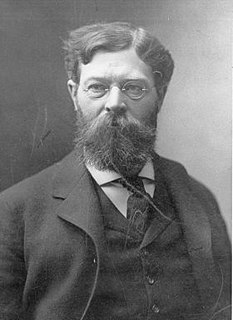A Quote by Robert Gilpin
The competitive nation-state system, with all its capacity for good and evil, is spreading in the Third World and is transforming that world.
Quote Topics
Related Quotes
Most of our competitor nations around the world have a national education system and America is the only major nation in the world that operates off of local school boards. They receive very little direction from state boards of education or from the nation. So local school boards direct basically what happens and too often they're not willing to track or to do the supervision of the education system that will make it world competitive.
All third world literature is about nation, that identity is the fundamental literary problem in the third world. The writer's identity is insecure because the nation's identity is not secure. The nation doesn't provide the third world writer with a secure identity, because the nation is colonized, it's oppressed, it's part of somebody else's empire.
Were I to make the announcement and to run, the reasons I would run is because I have a great belief in this country [America]. ... There's more natural resources than any nation in the world; the greatest education population in the world; the greatest technology of any country in the world; the greatest capacity for innovation in the world; and the greatest political system in the world.
Exploitation and oppression is not a matter of race. It is the system, the apparatus of world-wide brigandage called imperialism, which made the Powers behave the way they did. I have no illusions on this score, nor do I believe that any Asian nation or African nation, in the same state of dominance, and with the same system of colonial profit-amassing and plunder, would have behaved otherwise.
I have heard and seen many examples of the cruelty that we are able to visit on one another during my time. . . I have also seen incredible forgiveness and compassion. Yes, each of us has the capacity for great evil. But for every act of evil there are a dozen acts of goodness in our world that go unnoticed. It is only because we believe that people should be good that we despair when they are not. Indeed, if people condoned the evil, we would be justified in losing hope. But most of the world does not. We know that we are meant for better.
If we are to avoid that catastrophe [a nuclear World War III], a system of world order — preferably a system of world government — is mandatory. The proud nations someday will see the light and, for the common good and their own survival, yield up their precious sovereignty, just as America's thirteen colonies did two centuries ago. When we finally come to our senses and establish a world executive and parliament of nations, thanks to the Nuremburg precedent we will already have in place the fundamentals for the third branch of government, the judiciary.
The world we live in is a world of mingled good and evil. Whether it is chiefly good or chiefly bad depends on how we take it. To look at the world in such a way as to emphasize the evil is the art of pessimism. To look at it in such a way as to bring out the good, and throw the evil into the background, is the art of optimism. The facts are the same in either case. It is simply a question of perspective and emphasis.
In this world, there is no absolute good, no absolute evil," the man said. "Good and evil are not fixed, stable entities, but are continually trading places. A good may be transformed into an evil in the next second. And vice versa. Such was the way of the world that Dostoevsky depicted in The Brothers Karamazov. The most important thing is to maintain the balance between the constantly moving good and evil. If you lean too much in either direction, it becomes difficult to maintain actual morals. Indeed, balance itself is the good.
The Internet may well disempower the nation state, but at the same time, it also strengthens certain specific state functions - like surveillance. As a political entity, it doesn't empower the nation sate. It creates the availability of much more data than the digestive system of the nation state could possibly assimilate.
There is just as much evil in all of us as there is good. We're all continuously guilty, even if we're not doing it intentionally to be evil. Here we are sitting in luxury hotels, living it up on the the backs of others in the third world. We all have a guilty conscience, but we do very little about it.





































